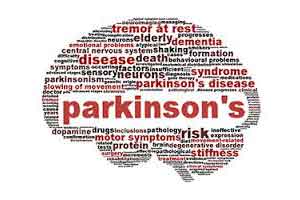- Home
- Editorial
- News
- Practice Guidelines
- Anesthesiology Guidelines
- Cancer Guidelines
- Cardiac Sciences Guidelines
- Critical Care Guidelines
- Dentistry Guidelines
- Dermatology Guidelines
- Diabetes and Endo Guidelines
- Diagnostics Guidelines
- ENT Guidelines
- Featured Practice Guidelines
- Gastroenterology Guidelines
- Geriatrics Guidelines
- Medicine Guidelines
- Nephrology Guidelines
- Neurosciences Guidelines
- Obs and Gynae Guidelines
- Ophthalmology Guidelines
- Orthopaedics Guidelines
- Paediatrics Guidelines
- Psychiatry Guidelines
- Pulmonology Guidelines
- Radiology Guidelines
- Surgery Guidelines
- Urology Guidelines
Focused ultrasound treats Parkinson's tremor without surgery

An initial test to determine if a scalpel-free form of brain surgery can reduce tremor caused by Parkinson's disease has produced encouraging results. Further research is warranted, the researchers conclude in a paper published today in the scientific journal JAMA Neurology.
The Focused ultrasound technology works by focusing sound waves inside the body to generate a tiny hot spot, much like a magnifying glass focuses light. By carefully controlling this process, researchers can interrupt faulty brain circuits or destroy unwanted tissue. Unlike traditional brain surgery, there is no need to drill or cut into the skull. Magnetic resonance imaging lets them monitor the location and intensity of the procedure in real time, an important safety feature when making permanent changes to the brain.Focused ultrasound already has been approved by the U.S. Food and Drug Administration for the treatment of essential tremor, the most common movement disorder. That approval came after Elias and his colleagues at UVA pioneered the approach. Other researchers are also evaluating focused ultrasound's potential for treating many other conditions, including breast cancer, brain tumors, epilepsy, and pain.
The small pilot study was led by Jeff Elias, MD, of the University of Virginia School of Medicine, and also was conducted at Swedish Neuroscience Institute in Seattle. Twenty-seven participants with tremor-dominant Parkinson's disease were enrolled in the study; the research team randomly assigned 20 to be treated with focused ultrasound waves on their brains, while the others received a fake procedure, to account for any potential placebo effect. (They were later offered the opportunity to have the actual procedure). All had the tremor that had resisted medical treatment, and all continued taking their existing Parkinson's medication.
The trial participants who received the focused ultrasound procedure had a 62 percent median improvement in their hand tremor three months later. Those who underwent a sham procedure also improved to a lesser degree, however, suggesting some placebo effect. Additional testing is needed to better establish the effectiveness of focused ultrasound for Parkinson's tremor, the researchers concluded.
The median age of trial participants was 67.8 years, and 26 were male. The most significant side effects reported were mild numbness on one side of the body, which improved, and numbness of the face and finger, which were persistent. Two subjects also experienced partial weakness that recovered or improved during the study. (The procedure has since been modified to mitigate this risk of weakness, the researchers say.)
Next Steps
The researchers believe that a larger, multicenter study is needed to better define the potential role of focused ultrasound in managing Parkinson's disease.
"Our findings suggest that the patients likely to benefit from this approach are those for whom tremor reduction is enough to improve their quality of life," said UVA researcher Binit Shah, MD.
To learn more about focused ultrasound at UVA, visit uvahealth.com/focusedultrasound. To keep up with all the latest developments and research breakthroughs from UVA, subscribe to the Making of Medicine blog at makingofmedicine.virginia.edu.
For more details click on the link: http://dx.doi.org/10.1001/jamaneurol.2017.3098

Disclaimer: This site is primarily intended for healthcare professionals. Any content/information on this website does not replace the advice of medical and/or health professionals and should not be construed as medical/diagnostic advice/endorsement or prescription. Use of this site is subject to our terms of use, privacy policy, advertisement policy. © 2020 Minerva Medical Treatment Pvt Ltd